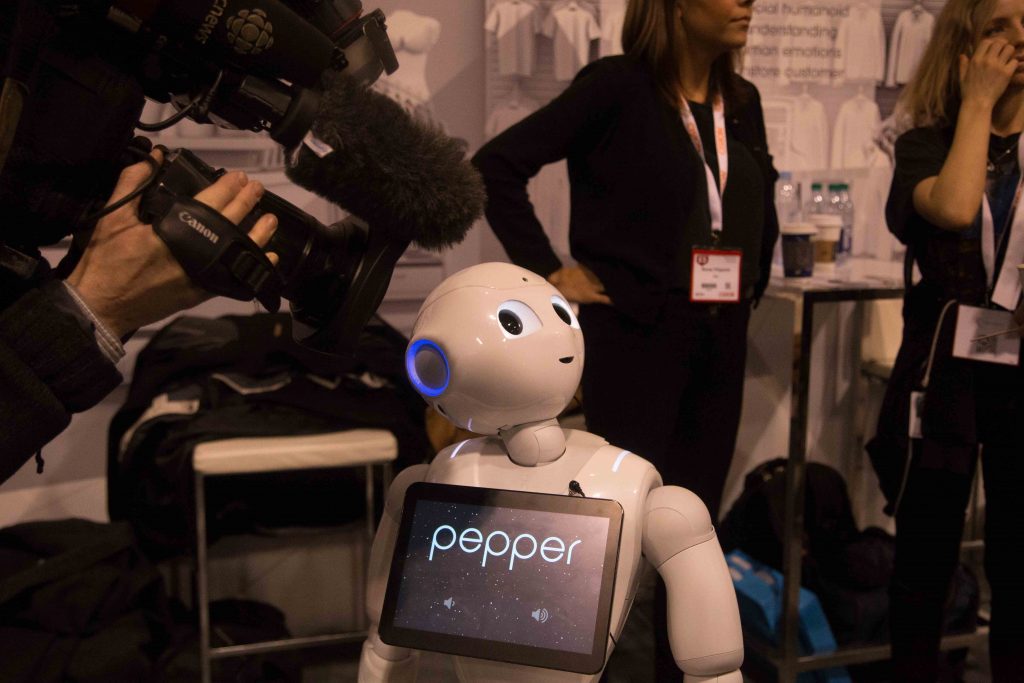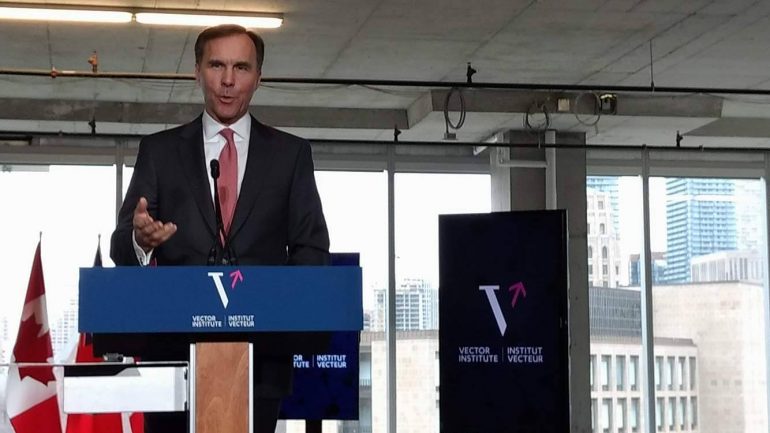The Digital Finance Institute (DFI) has released a report examining the state of AI in Canada compared to the rest of the world.
The DFI is a Vancouver-based think tank which addresses issues in financial innovation, digital finance policy and regulation, financial inclusion, and women in financial technology.
The report, Towards Inclusive AI Artificial Intelligence & Machine Learning Report for Canada, examines AI’s potential to disrupt a variety of sectors, including cybersecurity, financial services, and chatbots. The report focused on investment in the tech space, leadership of technology companies, and financial institutions, startups, and support in ecosystems around the world.
Christine Duhaime, founder of DFI, writes in the executive summary that many countries are ahead of Canada in AI. “If we want to compete, we need to focus on funding more AI startups, recognizing the talent we have across the entire country, and help our AI startups export Canadian talent in AI that is commercialized to other countries,” she says.
The report says that Canada “uniquely” has the most promise to be an AI leader in many aspects of commercial AI, including quantum computing, infrastructure, and blockchain. The technology also has the potential to add $7.5 billion to the GDP and create 170,000 jobs by 2025.
“Canadian entrepreneurs can create leading AI technology, but they do not always know what the angst points are that industry leaders in traditional financial services, such as infrastructure asset management, who are not tech savvy, need remediated,” the report says.
“The ability of a country to lead in AI, including autonomous vehicles, is directly dependent upon its Internet capabilities on mobile devices.”
In terms of gaps in Canada, stakeholders interviewed for the report expressed concerns over the federal government’s decision to fund only Montréal, Toronto, and Edmonton in its AI strategy. Stakeholders were concerned about a lack of inclusion of the talent of other Canadians. However, there was support for the view that funding is most effective when it flows to the places where the best startup talent resides. Among stakeholders, there is optimism that the government will provide equal funding to the rest of the country.
Another gap is adequate access to the internet. The report says that advanced technology that is AI-driven and uber-connected must be connected to users’ mobile phones to continually machine learn and serve customers. The Canadian government has taken steps to make the internet more accessible, including the launch of the Connect to Innovate program that aims to bring broadband internet access to 300 remote and rural areas across Canada.
“The ability of a country to lead in AI, including autonomous vehicles, is directly dependent upon its internet capabilities on mobile devices and on mobile data usage affordability,” the report says.
Canada has the most expensive mobile data in the world, along with low mobile data usage. Unless this changes, Canada may not be able to reach the full potential of the commercialization of AI.
Canadian businesses lag behind many other OECD countries for investment in research and development in AI. On average, they invest less than one percent of Canada’s GDP compared to other countries, which invest approximately 1.5 percent.
US companies, in comparison, invest almost two percent of GDP on R&D in AI, and the country’s public and private sectors are active in AI investments. In 2015, the US public sector invested $1.1 billion USD in unclassified R&D in AI technology, and likely four to eight times that in classified R&D in AI. Venture capital investments in AI in the US increased by 302 percent in 2014. Last year, the tech industry in the US spent $8 billion USD on AI, and in 2025, AI is expected to surpass $30 billion USD.

The Canadian government is working to address the investment gap by dedicating $125 million to a national AI strategy, and allocating $40 million to $50 million of that towards an AI Institute in Toronto. The budget also included an annual grant of $7.2 million to a Toronto-based organization, the Canadian Institute for Advanced Research, for five years to administer the new AI strategy.
“We are doing our best to make the most of Canada’s research strengths. Canada is committed to ensuring that government science is fully available to the public, that scientists are able to speak freely about their work, and that scientific analyses are considered as part of the evidence-based policy process when government makes decisions,” Minister of Science Kirsty Duncan says in the report.
While there are many benefits to implementing AI in many industries, there are also pitfalls. In Canada, 7.5 million jobs may be lost to automation over the next 15 years. The report says that some are predicting that this could be the end of the middle class, since automation will replace low skilled or middle class jobs. AI is expected to replace 110 million full-time employees globally by 2025.
This aligns with the Brookfield Institute study published last month, which suggests that youth must be equipped with a broader suite of technical and soft skills to remain competitive in a changing workforce.
However, in a human-machine study conducted by BMW, teams comprising of humans and robots collaborating were 85 percent more productive than those comprising of humans or robots alone, which could indicate that not all jobs would be lost.
“Given the prospect of mass unemployment, governments will need to focus on building a workforce that is prepared for both the opportunities and challenges presented by AI,” says Dunhaime. “In that vein, they will need to identify areas of opportunity and coordinate R&D to build a well-trained, data-literate workforce, with relevant skills in an AI-dominated world.”


